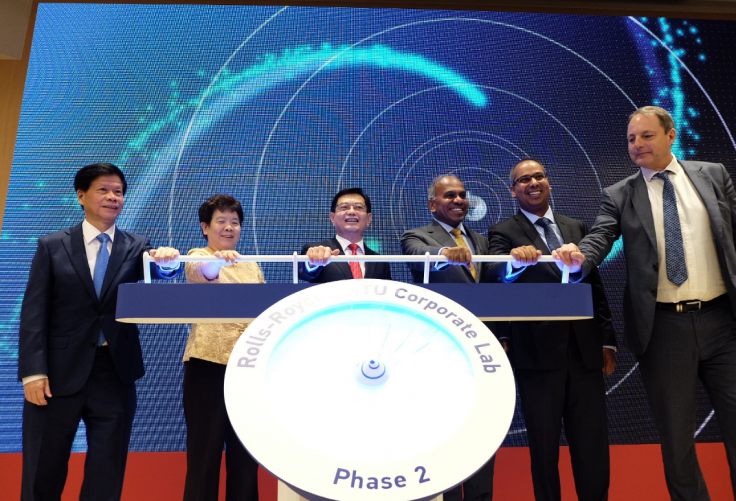
Nanyang Technological University (NTU) and the global engineering company Rolls-Royce collaborated to establish Rolls-Royce@NTU Corporate Laboratory, which successfully completed phase one with 53 joint projects and now, Deputy Prime Minister Heng Swee Keat launched phase two of the Corporate Lab on Thursday.
This is the first corporate lab in Singapore, jointly set up by the NTU, Rolls-Royce and the National Research Foundation (NRF) in 2013. Now, $88 million has been jointly invested for 29 new projects under Rolls-Royce@NTU Corporate Lab phase two that will focus on developing novel technologies that will power the future of aircraft propulsion.
These 29 new projects will make use of Industry 4.0 technologies, including connecting computers, machines and engines, generating valuable data that will enhance design, manufacturing, maintenance, services and operations.
One of the key objectives of the project is to develop technologies that are eco-friendly efficient and sustainable. The Corp Lab will also address challenges related to 3D printing and additive manufacturing technologies.
As mentioned by NTU, the newly launched phase will also address problems faced by the aerospace industry through five key pillars which are Electrical, Manufacturing Technology, Advanced Repair and Materials, Data Analytics and Complex Systems and Internet-of-Things.
This Crop Lab was supported under Singapore public-private research and development (R&D) partnership between universities and companies. The phase two's 53 projects include research areas such as power electronics, data analytics and repair and manufacturing technologies. It should be noted that the research results from phase one are currently in use to design and develop future power and propulsion systems and improve manufacturing operations in the country as well as other global sites of Rolls-Royce.
Rolls-Royce@NTU Corporate Lab has recently developed digital solutions using artificial intelligence (AI) that led to a new virtual engine emulator that uses AI to analyse decades of engine design data to harvest new insights.
NTU President Professor Subra Suresh said that the Corp Lab "is a fine demonstration of NTU scientists working with the industry to develop relevant solutions to meet real-world issues." With the launch of phase two, "we will build on NTU's core strengths, in areas such as alternative energy storage solutions, machine learning, artificial intelligence, and big data analysis," said Prof Suresh.
Rolls-Royce President for Southeast Asia, Pacific and South Korea Bicky Bhangu stated that the Lab is a perfect example of the "virtues of collaboration." He said the Corp Lab provides academic minds with a valuable window into industrial problems and be able to work together for a common good, as well as a dynamic platform "as we move towards a new way of learning and a new way of working."
The launch of Corp Lab phase two is expected to provide good outcomes produced through academia-industry-government partnerships in corporate laboratories in the universities, said NRF CEO Professor Low Teck Seng.
The researchers from NTU have worked closely with Rolls-Royce scientists and engineers on R&D that has direct relevance to the aviation industry and now after the launch of Phase two it can be expected that the partnership "will build on the good progress made, and look into integrating digital technologies and sustainable solutions into flight systems and aerospace parts," added Prof Low.









